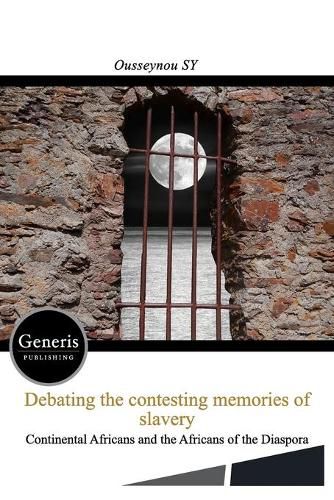Readings Newsletter
Become a Readings Member to make your shopping experience even easier.
Sign in or sign up for free!
You’re not far away from qualifying for FREE standard shipping within Australia
You’ve qualified for FREE standard shipping within Australia
The cart is loading…






This book analyzes the sentimental attachments to historical injury of slavery between continental Africans and diaspora slave descendants. It argues that there is memory decalage resulting from how slavery is lived, experienced, learned and taught across the Atlantic. This memory decalage is engendered mostly by the politics and processes of blackwashing and whitewashing which hide various historical and ideological agendas. The author’s claim is that the silences of history have to be unmuted for the sake of ‘devoir de memoire’ and also for the need of engaging a sincere international dialogue on shared responsibility in healing the wounds of slavery. The author contends also that the only history that can be viewed as tragic or shameful is the one muted since it runs the risk of repeating itself in one way or another. A glimpse at contemporary post-colonial African literature shows that Africa has, in many respects, unlearned many of the lessons of that tragedy.
$9.00 standard shipping within Australia
FREE standard shipping within Australia for orders over $100.00
Express & International shipping calculated at checkout
This book analyzes the sentimental attachments to historical injury of slavery between continental Africans and diaspora slave descendants. It argues that there is memory decalage resulting from how slavery is lived, experienced, learned and taught across the Atlantic. This memory decalage is engendered mostly by the politics and processes of blackwashing and whitewashing which hide various historical and ideological agendas. The author’s claim is that the silences of history have to be unmuted for the sake of ‘devoir de memoire’ and also for the need of engaging a sincere international dialogue on shared responsibility in healing the wounds of slavery. The author contends also that the only history that can be viewed as tragic or shameful is the one muted since it runs the risk of repeating itself in one way or another. A glimpse at contemporary post-colonial African literature shows that Africa has, in many respects, unlearned many of the lessons of that tragedy.